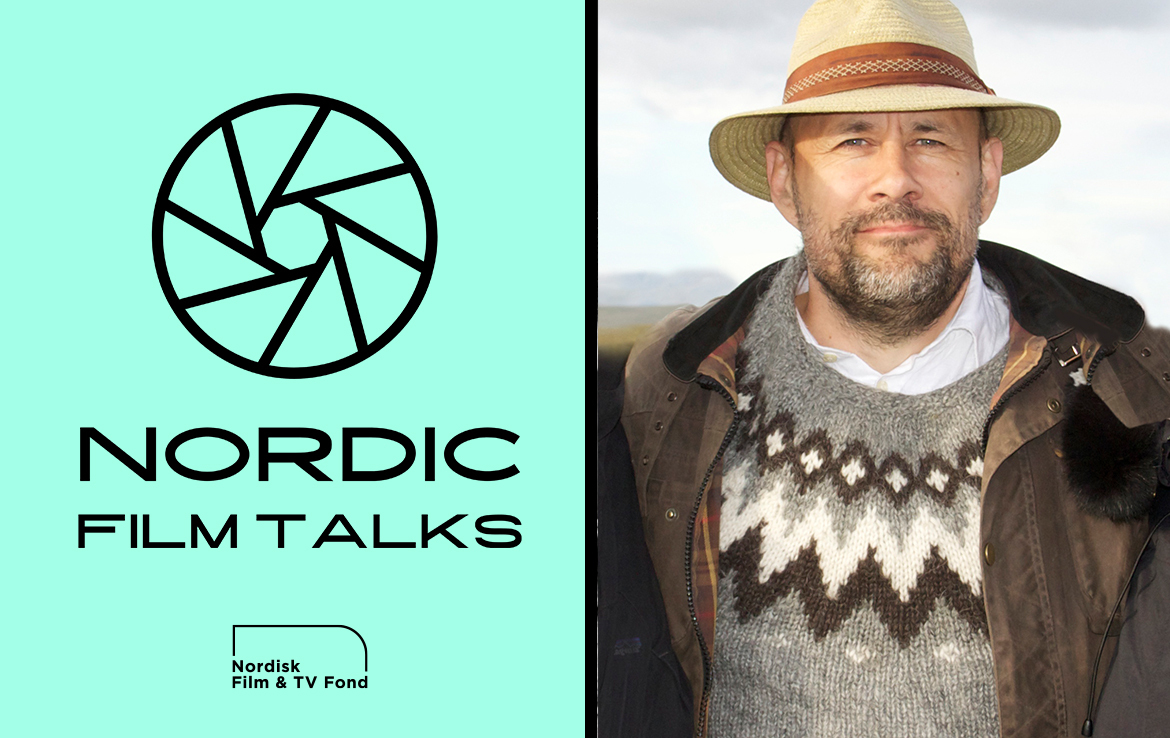
Nordic Film Talks: Benedikt Erlingsson
The Icelandic writer/director talks about moving into TV with The Danish Woman, why he likes headstrong women, and how he tries to pull the carpet from underneath the audience.
The head of the International Sámi Film Institute talks about boosting indigenous filmmaking through smart collaborations with Netflix, Disney, NRK, Telefilm Canada and more - and she reveals what’s next for Sámi filmmakers.
From her home in the small Arctic village of Kautokeino, Norway (with a population of less than 3,000 people), Anne Lajla Utsi has made a major impact across the globe for indigenous storytelling.
Utsi is the head of the International Sámi Film Institute (ISFI), which she co-founded in 2009, and which has now grown to include partnerships with Netflix and major public broadcasters like NRK, SVT and YLE; creating collaborations with Telefilm Canada and other partners to the Arctic Indigenous Film Fund, and getting Sámi films screened in major festivals like Venice and Toronto as well as at the Academy Museum in Los Angeles.
“Now we are seeing the results of the many years of hard work from the staff at the Sámi Film Institute. Our filmmakers who started out with short films are stepping into the bigger productions. We have many feature films coming up and many drama series coming up. It means a whole lot to us to get that international recognition and attention,” Utsi says in the latest episode of the Nordic Film Talks podcast.
Some recent productions that ISFI have supported include the youth series Shut Up (Oro Jaska), Egil Pedersen’s Toronto premiere My Father’s Daughter (Biru Unjárga - Føkkings Nesseby) — both backed by Nordisk Film & TV Fond — and Netflix’s first Sami film, Stolen (Stöld).
She says ISFI is still at a crossroads even with those recent successes, “We are still building. After 15 years, we are still fighting to get more funding, more narrative sovereignty. We want to own our own stories.”
The Sámi people are the only recognised indigenous people in the European Union. They are spread across Norway, Sweden, Finland, and parts of Russia. Traditionally they have lived as reindeer herders (although now of course modern Sámi people have many different livelihoods).
The Sámi have faced forced assimilation, suppression of their native languages, and land grabs throughout history. Telling their own stories in their own ways is so important, Utsi says. “We believe so strongly in the power of film, because film can travel across all cultural barriers and borders or language borders. Films can reach hearts all across the world.”
The partnership with Netflix resulted in the feature film Stolen getting made for the platform, as well as the streamer sponsoring a number of continuing training programmes for Sámi storytellers such as the Netflix Writers Academy and a new Sámi Producers Lab with EAVE. Utsi explains: “They wanted to collaborate with us, and we said, ‘Yes, we can collaborate, but you do need to have a Sámi director on this project, and you do need Sámi crew members, because this story is so specific, and it's about reindeer herding.' They were really listening. That's how Elle Márjá Eira also was brought on board as a director, which was incredible.”
Another groundbreaking collaboration came with Disney Animation Studios, which consulted a Sámi advisory board including Utsi when creating their film Frozen 2. “It was quite an interesting experience, They had already made these Northuldra characters, which were inspired by the Sámi people and our culture and traditions. They wanted to lean into the Sámi traditions, which we thought was a good thing… What's interesting, of course, is that such a big company as Disney sees the value of making culturally sensitive stories, which they did with Frozen 2, and which they are also doing with Moana and Moana 2.”
New projects on the horizon are Åse Katrin Vuolab’s series The Wedding Party – A Countdown To Disaster with NRK; Sami Blood (Sameblod) director Amanda Kernell’s next film, The Curse - A Love Story (Förbannelsen - en kärlekshistoria), which will shoot in winter 2025; and Elle Sofe Sara’s Arru, which will be the first Sámi joik musical film. All three projects are supported by NFTVF.
They also plan to continue with more immersive projects following the success of their ÁRRAN 360° XR films that were shown at the Venice Biennale in 2022.
Utsi continues: “I want us to be in the forefront of the innovation of technology and AI and XR and all the new technology that comes, and look at how we can combine that with our ancient stories, but also contemporary indigenous and Sámi stories. It’s really exciting to explore those possibilities.” One project they are part of is the Indigenous XR Lab, in collaboration with York University in Canada.
She also wants to help enable indigenous work across the world, not just for Sámi people. “There is a long tradition of indigenous collaboration and networks, especially in the political field, because we are all fighting for our rights in different ways. It's always been important to connect with other indigenous communities around the world. It’s important for our filmmakers to connect to the global film scene and the global indigenous film community.”
In the podcast episode, Utsi also talks about how Nils Gaup’s Sámi-language film Pathfinder (Veiviseren) changed her life when she saw it as a teenager; why she’s fighting for more funding for indigenous filmmakers; and how Arctic stories are especially important in the context of climate change.
Listen to the podcast here:
The Nordic Film Talks is available for free on Nordisk Film & TV Fond’s website’s Industry Insight section (CLICK HERE) and distributed through major podcast platforms including Spotify, Apple Podcasts, iHeartRadio, Amazon, Castbox, Deezer, Podcast Addict, Podchaser and JioSaavn.
To read more about Shut up: CLICK HERE.